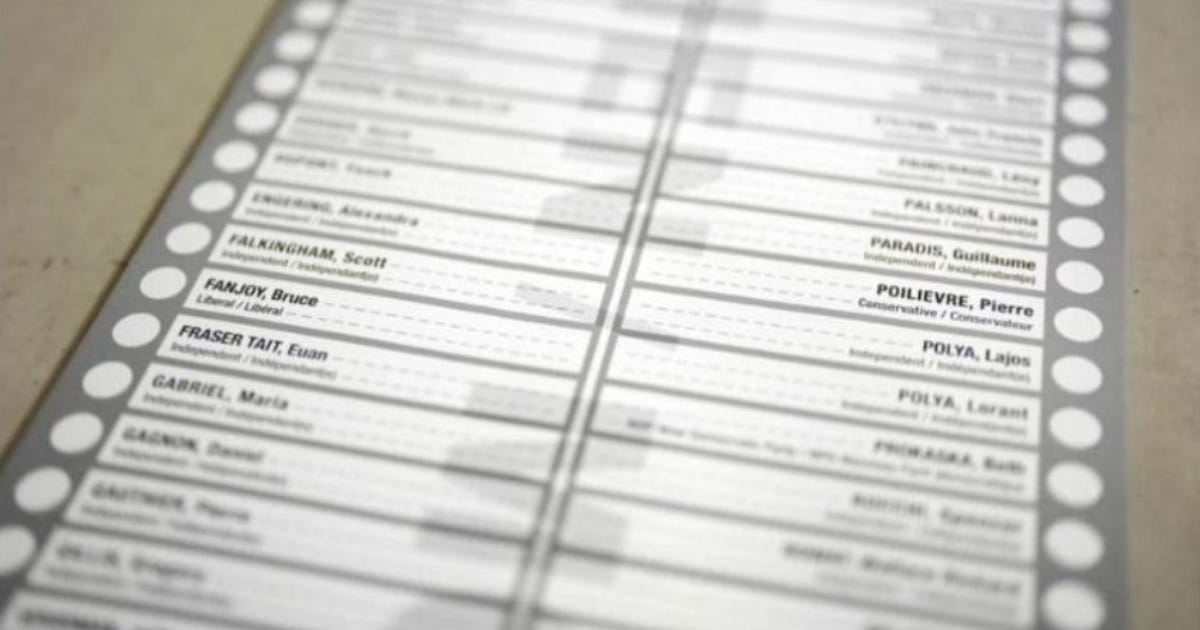Poilievre to face 7-foot by-election ballot with over 200 challengers
As the number of “candidates” running against Conservative Leader Pierre Poilievre in the Battle River—Crowfoot by-election continues to grow, so too does the size of the record-length ballot.
As the number of “candidates” running against Conservative Leader Pierre Poilievre in the Battle River—Crowfoot by-election continues to grow, so too does the size of the record-length ballot.
As of Monday morning, one X commentator claimed that the ballot length was currently 88.2 inches, or seven feet long.
The final day for candidates to submit their nominations is today. The list of confirmed candidates will be available by Wednesday.
As of early Monday afternoon, Elections Canada had 209 candidates listed in the riding. 199 of the 209 candidates (95 per cent) are represented by Tomas Szuchewycz.
Poilievre has called the group behind the effort—the Longest Ballot Committee—a “scam.”
When the Conservatives wrote to the Liberals to fix the loophole in Canada’s election laws on July 22, there were 152 candidates registered. By Thursday, July 24, this had grown to 192 candidates. In almost every instance, Szuchewycz represented about 95 per cent of registered candidates.
“These aren’t real candidates. They aren’t campaigning. They aren’t engaging with constituents,” wrote Poilievre and Conservative MP Michael Cooper. “This is a coordinated scheme to weaponize the ballot and disrupt our democratic process. This blatant abuse undermines the integrity of our elections.”
When Poilievre faced the same protest group’s ballot padding in the federal election, he faced 91 candidates and an almost one-metre-long ballot.
Elections Canada warned the Liberal government in the past to stop ballot exploitation, but their calls went unanswered.
A whistleblower recently alleged that the Longest Ballot Committee “duped” him by saying that he’d be running against Mark Carney, but instead secretly signed him up to run against Poilievre.
Not a single “protest candidate” ran against Carney.
Currently, the law requires only 100 signatures from local electors for someone to run. There is no rule preventing an individual from signing nomination papers for multiple candidates, nor is there a limit on how many candidates a single agent can represent.
The Conservatives recently issued three demands for electoral reform. Firstly, they argue that candidate nominations should require 0.5 per cent of the population in a riding, not just 100 signatories. As for those signatories, the Conservatives demanded that signatures be limited to signing for one candidate. Lastly, they also demanded that official agents can only represent one candidate at a time.
Despite calling for this immediately when Parliament returns in September, it would not affect Poilievre’s upcoming by-election on August 18, 2025.






Election Canada said that the will allow you to write down the name of the candidate you want in ink. No long list.